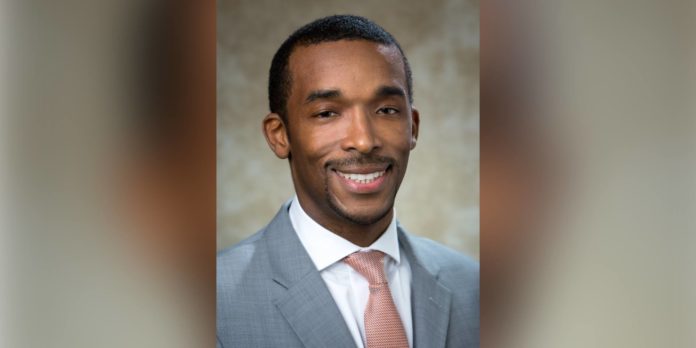SAVANNAH – Mercer University School of Medicine faculty member Dr. Bonzo Reddick was among 14 members of the newly created Georgia Department of Public Health (DPH) COVID-19 Health Equity Council announced Feb. 26.
The group will help DPH increase the effectiveness of its public health programs statewide, ensure equity in COVID-19 vaccination distribution and administration, and improve outreach and communication within Georgia communities most affected by COVID-19.
Dr. Reddick serves as chair of community medicine, associate dean for diversity, equity and inclusion, and professor of community medicine on the Savannah campus. His research focuses on promotion of health equity, particularly in historically marginalized populations.
Dr. Reddick’s research interests include the use of multidisciplinary approaches in the early diagnosis and management of HIV/HCV in primary care and emergency care settings, prevention of HIV/HCV in communities using harm reduction methods such as PrEP and needle exchange programs, health care for the homeless, application and teaching of social determinants of health approach to health care, and the use of test-enhanced learning to improve academic performance and medical knowledge.
He earned his Bachelor of Science degree in biology from Morehouse College, Doctor of Medicine from Morehouse School of Medicine and Master of Public Health from the University of North Carolina at Chapel Hill, and completed a family medicine residency at UNC Hospitals and a fellowship in career development at UNC School of Medicine.
“Unfortunately, our health care system has done things to lose the trust of certain racial and ethnic minority communities, but this is hopefully a step toward regaining and earning that trust,” said Dr. Reddick. “I am looking forward to being a part of the solution and honored to be working alongside colleagues to make a difference in our communities.”
The COVID-19 Health Equity Council will work in close partnership with the 18 public health districts in the state to reach communities of color and the most vulnerable populations with the goal of addressing concerns related to the COVID-19 vaccine. Additional members will be added in the coming weeks.
“The COVID-19 vaccine is safe and proven to work,” said Kathleen E. Toomey, M.D., M.P.H., commissioner of the Georgia DPH. “We must make sure our most vulnerable populations understand the benefits of the vaccine – for themselves, their families and their communities. The DPH COVID-19 Health Equity Council will inform our efforts and help us reach these individuals with vaccine availability and awareness messages.”
DPH findings indicate that Georgia’s most vulnerable communities have expressed hesitation about receiving the COVID-19 vaccine due to concerns about its safety and efficacy. Research shows nearly half of Black Georgia residents have stated they do not plan to get vaccinated, but 83% of Black Georgians across all age groups would gain more confidence in the vaccine if they knew it worked safely. Additionally, 38% of Hispanic Georgians do not plan to receive the vaccine, and 28% have expressed doubt in its efficacy. However, 34% of the Hispanic male Georgians surveyed indicated that clear messaging about vaccine safety would sway them.
About Mercer University School of Medicine (Macon, Savannah and Columbus)
Mercer University’s School of Medicine was established in 1982 to educate physicians and health professionals to meet the primary care and health care needs of rural and medically underserved areas of Georgia. Today, more than 60 percent of graduates currently practice in the state of Georgia, and of those, more than 80 percent are practicing in rural or medically underserved areas of Georgia. Mercer medical students benefit from a problem-based medical education program that provides early patient care experiences. Such an academic environment fosters the early development of clinical problem-solving and instills in each student an awareness of the place of the basic medical sciences in medical practice. The School opened a full four-year campus in Savannah in 2008 at Memorial University Medical Center. In 2012, the School began offering clinical education for third- and fourth-year medical students in Columbus. Following their second year, students participate in core clinical clerkships at the School’s primary teaching hospitals: Medical Center, Navicent Health in Macon; Memorial University Medical Center in Savannah; and Piedmont Columbus Regional Hospital and St. Francis Hospital in Columbus. The School also offers master’s degrees in family therapy, preclinical sciences and biomedical sciences and a Ph.D. in rural health sciences.









